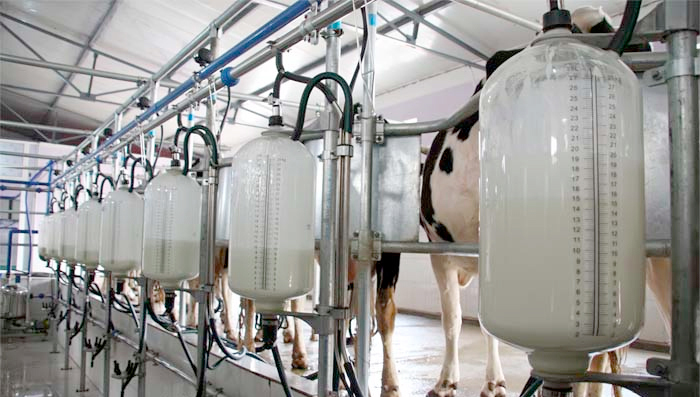
Defra Farm Minister George Eustice has said he has told HMRC to 'go easy' on dairy farmers currently struggling in the harsh market conditions.
"HMRC have procedures in place where they can show some forbearance in sectors with cash-flow problems," said Eustice.
"Last year most dairy farmers had a good year. It’s a good thing, but it does mean that the have potentially a large tax bill coming up in June.
"What concerns us is that dairy farmers will be asked for a significant up-front tax payment at a time that they can least afford it.
NFU President Meurig Raymond said: "Longer term, Government will support the UK dairy industry in its ambition to reduce the trade deficit on dairy through encouraging and developing new markets for export.
“It was reassuring that everyone around the table – Government, retailers, processors and banks - showed commitment and a desire to back British dairy farmers. What we need to see now is action to help those farmers through this difficult period."
"Firstly – the whole dairy industry stood behind the ‘Leading the Way’ strategy last June – we still need that strong and united commitment from across the dairy industry and a programme of action to ensure that we achieve its aims – an elimination of UK dairy trade deficit by 2025.
“Obviously in the short term there are more pressing concerns. We’re calling on Government, banks, processors and retailers to fully recognise the severity of the current situation and call for relief measures such as immediate payment of overdue SPS payments and a lifting of the EU dairy intervention price.
“On the supply chain we need to implement the recommendations of the voluntary code review and develop more balanced ways of managing risk in contracts when quotas are removed. Milk buyers have a responsibility to provide fairer, more transparent contracts to their suppliers and not use this market situation to take advantage of them.
“Farmers also need to understand that there is strength in numbers, and working together in producer groups can benefit all through stronger negotiation and bargaining power. Government can help promote the positive aspects of producer groups to encourage uptake.
“And finally risk management. Volatility is here to stay so we need farmers to be able to access measures to manage it. This includes the ability to average profits over a longer period, improved milk pricing mechanisms such as use of formulas, consideration of cost production and longer term pricing. For the future, we need to learn from successful models in New Zealand and the US where farmers can manage risk by utilising dairy futures markets.
“Now is not the time to allocate blame for what is a worldwide collapse in dairy prices but rather to unite in the cause of British dairy farming.”
Defra’s latest Farm Business Income forecasts predict a decline in the profitability of farming across the majority of farming sectors and serve as a warning as to how much agriculture is susceptible to increased volatility, the NFU said.
The figures show a 13 per cent fall in incomes for dairy farmers. Similarly, the livestock sectors have suffered, with incomes on pig farms forecast to be down by 23 per cent and on poultry farms by 12 per cent. Forecasts indicate that grazing livestock farms are showing signs of recovery.
However, even with increases in income across the beef and sheep sector, profitability still remains at a very low level, with farm income in this sector projected to sit around £16,000. A marginal increase in incomes is also expected in cereal farm income.
